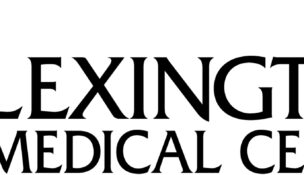Pandemic, vaccines driving insurance innovation
Contributing Writer //October 21, 2021//
By Christina Lee Knauss
When the federal government unveiled new COVID-19 vaccination mandates in September, leaders at Colonial Life went to work to find solutions for employers who might feel overwhelmed by the prospect of keeping track of who in their workforce has and hasn’t gotten the shots.
The result is Vaccine Verifier, a digital platform that offers a way for employers to verify vaccination status and keep track of vaccine exemptions and the testing status of non-vaccinated employees. The program launches in November.
Coming up with Vaccine Verifier is just one of the ways the Columbia-based supplemental insurance company has been working to help both its employees and customers face ongoing challenges brought on by the pandemic, according to Tim Arnold, president of Colonial Life.
Arnold said adapting to change and coming up with new products and solutions quickly has been as important in the insurance industry as it has been to the rest of the economy since the pandemic hit 19 months ago. He said Colonial Life, like others in the industry, has experienced economic challenges as well as technological ones.
“Many of the challenges related to COVID-19 were common across industries, and the insurance industry faced a special challenge because during the height of pandemic restrictions and infections, we faced declines in new sales and increases in claim costs,” Arnold said. “We maintain significant reserves to deal with unexpected events and can support policyholders during unexpected change.”
Like many other employers, Colonial Life came up with technology solutions to allow employees to work remotely during the height of the pandemic. Now, as more people go back into workplaces nationwide, Arnold said digital solutions such as Vaccine Verifier offer a way for companies to both make employees feel safer and comply with vaccine and testing mandates as they emerge.
Vaccine Verifier offers a variety of web-based solutions to track new layers of record-keeping brought on by COVID-19. These include a self-service portal where employees can report vaccination status and upload documents, tools for handling intake of medical- and non-medical vaccine exemption requests, and a way to handle test-result documentation for non-vaccinated employees.
“Many busy human resource professionals will soon be charged with either requiring employees to become vaccinated or show proof of a negative COVID-19 test at least weekly,” Arnold said. “In doing so, they also need to consider requests made by employees who want to be excused from the mandate due to a medical or religious reason. These professionals may be unfamiliar with how to assess and fulfill these mandates. Vaccine Verifier provides a solution for this business need.”
A tool like Vaccine Verifier not only will offer companies a way to stay safe and in compliance with the law, but in the long run can help with the economic bottom line as well, Arnold said.
“Tracking vaccination status and monitoring test results could slow the spread of COVID-19 and improve the health and safety of workers, therefore also lowering medical costs over time,” he said
Along with the economic and technological challenges, COVID-19 has also profoundly changed the work cycle and workload for insurance companies that specialize in health insurance, according to Joel Lourie, president and CEO of Columbia-based Lourie Life and Health. The company also has offices in Greenville, Charleston and Myrtle Beach and independent agents in eight other states.
“From the very beginning, we’ve seen a heightened interest from consumers in making sure they have the right health coverage,” Lourie said. “The pandemic forced many individuals and families to realize that something very unexpected can happen and that the impact can be devastating, if not fatal. At times like this, it can be very detrimental for people to not have the proper health insurance or Medicare coverage.”
In normal years, Lourie said his company would see its heaviest workload during annual enrollment periods for Medicare and policies obtained on the national health care exchange through healthcare.gov. The pandemic prompted the federal government to keep enrollment open longer for plans bought on the exchange and also to increase federal subsidies for those policies.
“Our phones have pretty much been ringing off the hook since March of 2020,” Lourie said. “Normally we would be very busy from October through December and then for the next six months plan for the next enrollment season, but now the calls come in throughout the year. We’ve added staff because of the increased need.”
The COVID-19 pandemic also forced many people to confront some very stark realities — namely, that they aren’t going to live forever. As a result, Lourie said, interest in life insurance peaked during the height of the pandemic and is still going strong.
According to a September article in Forbes Magazine, the number of life insurance policies sold nationwide increased 8% in the first six months of 2021, the largest year-over-year increase since 1983. The numbers came from a study done by LIMRA, an industry-funded research firm.
“We are seeing more inquiries about life insurance because all of this caused everyone to sort of come to understand their own mortality,” Lourie said.
“The whole life insurance industry itself has seen an increase in applications for new policies placed since the third quarter of last year. Because of COVID-19, people have really come to realize that something like a serious, life-threatening illness can happen to anyone at any time.”
P















